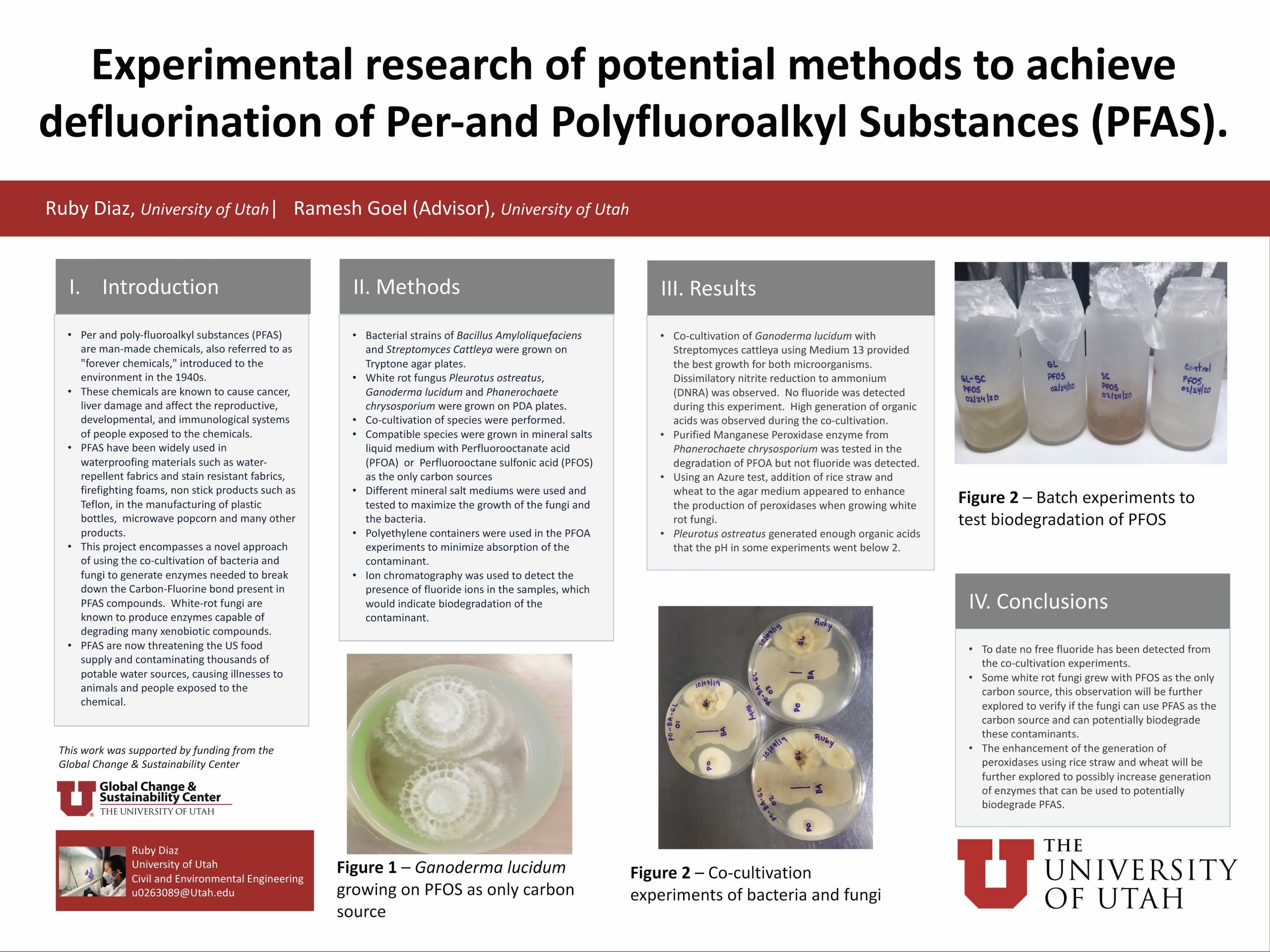Experimental research of potential methods for defluorination of PFAS
– Ruby Diaz
[bs_collapse id=”collapse_17a8-dcd1″]
[bs_citem title=”Bio” id=”citem_c7ee-1348″ parent=”collapse_17a8-dcd1″]
I am a civil and environmental engineer currently pursuing a Ph.D. at the university of Utah. My research interest is biodegradation of recalcitrant pollutants using fungi and/or bacteria.
[/bs_citem]
[bs_citem title=”Abstract” id=”citem_687b-216b” parent=”collapse_17a8-dcd1″]
Per- and poly-fluoroalkyl substances (PFAS) are man-made chemicals, also referred to as “forever chemicals,” introduced to the environment in the 1940s. These chemicals are known to cause cancer and affect the reproductive, developmental, and immunological systems of people exposed to the chemicals.
This project encompasses a novel approach of using the co-cultivation of bacteria and fungi to generate enzymes needed to break down the C-F bond present in PFAS compounds. White-rot fungi are known to produce enzymes capable of degrading lignin. Enhancement of xenobiotic compounds’ degradation has been recorded when white-rot fungi have been co-cultivated with indigenous soil microorganisms.
[/bs_citem]
[bs_citem title=”Narrative” id=”citem_1b95-7e15″ parent=”collapse_17a8-dcd1″]
My research consists in development enzymes generated by either bacteria or fungi to biodegrade pollutants such as PFAS. Per- and polyfluoroalkyl substances are synthetic compounds that bioaccumulate and even at very low concentrations in the part per trillion range can be very toxic and detrimental to humans and animals. This is an ongoing research project with the objective to use microorganisms to break the carbon-fluorine bond of these compounds.
[/bs_citem]
[/bs_collapse]

